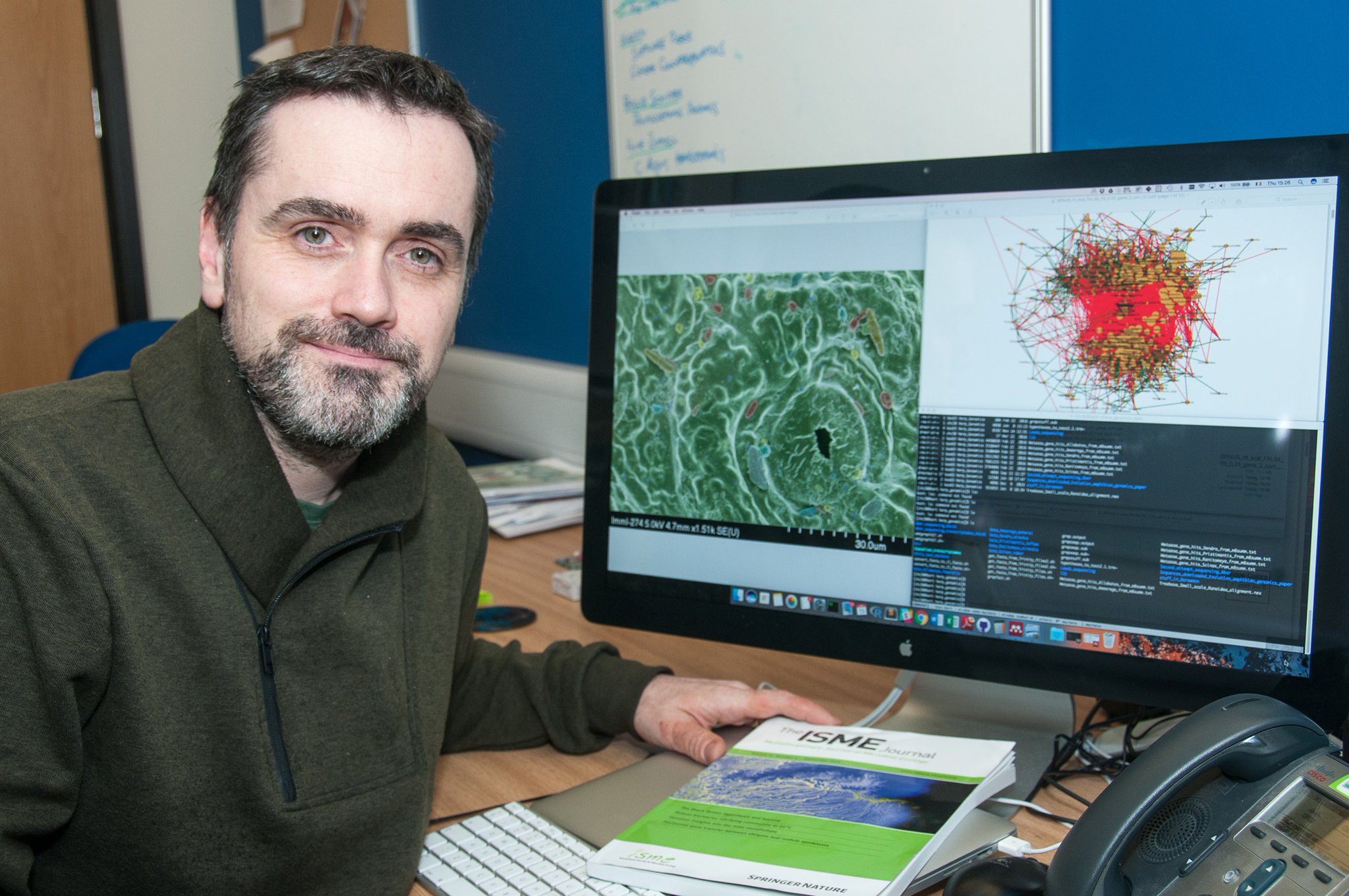Microbes carve out a niche for themselves

Dr Chris Creevey
23 January 2017
Researchers at the Institute of Biological, Environmental and Rural Sciences (IBERS) have been working with the Agriculture and Food Development Authority in Ireland (Teagasc) to develop a new way of identifying how different types of microbes can survive when competing for resources in the same environment.
Thepaper on this new method of identifying what is known as ‘niche specialisation’ by Dr Chris Creevey’s team at IBERS, is published in the Nature Publishing Group (NPG) ‘Multidisciplinary Journal of Microbial Ecology’: The ISME Journal.
Niche specialisation is the process by which, through natural selection, a species becomes better adapted to the specific characteristics of a particular habitat.
These organisms can be the principal drivers of important processes in the community and therefore are prime targets for researchers looking to engineer microbial communities to achieve desired outcomes.
Funding from the Biotechnology and Biological Sciences Research Council (BBSRC), EU Seventh Framework Programme and Science Foundation Ireland has enabled the researchers to use an evolutionary approach to identify the genes and functions that play an important role in maintaining niche specialisation.
Dr Chris Creevey said “We were looking to identify what resources different micro-organisms compete over when they are present in the same environment. Developing such an understanding is essential to meet many of the major challenges facing human society today, such as management of natural ecosystems and mitigation of climate change.
Despite the large numbers of microbiome studies that have been generated from the microbial populations found in the gut, the soil, the sea and human skin, we still lack a clear understanding of the ecology of the micro-organisms that have an essential role to play in everything from human health to earth system processes.”
It has long been thought that ecological principles developed for the study of large organisms should also be applicable to micro-organisms and while processes such as successional change and competition are known to occur in microbial communities, identifying signatures of niche specialisation remains a challenge.
Professor Mike Gooding, Director of IBERS said: “Our scientists are leading the way in research to tackle methane emissions and climate change. This study examined the signatures of niche specialisation between some of the most abundant organisms in the rumen microbiome of cattle, a major source of methane - the second most significant greenhouse gas in the UK.”
The results identified the specific functions important for each organism within the microbial community to maintain its niche in the rumen of cattle and represent novel targets for engineering this microbiome for desirable outputs (such as reducing greenhouse gasses).
This represents the first use of evolutionary approaches in this context and will allow researchers to both identify niche specialisation in any microbiome and to identify the organisms important for specific functions in any microbial community.



